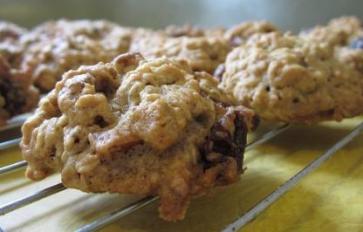
As a first-time mother, no one can prepare you for the total disruption your life will endure after giving birth to your child. From the ways childbirth transform your physical body and to how it revolutionizes the mind (in both good and not-so-good ways) we as mothers change in the most profound ways. Having been there, I can attest to the experience that as a first-time mom, we learn as we go. Looking back, I was just trying to learn the ropes, and now that 2 years has passed, I have delved into the world of Ayurveda to explain the complexities of childbirth and life postpartum.
The postpartum period is a time of vata imbalance. According to Ayurveda, vata reflects the elemental qualities of space and air. There is literally space left in the body where the baby once was of course, but unbeknownst to many mothers is that post-delivery a vata-imbalance often manifests. It shows up in the mind as thoughts of overachievement, restlessness and worry. This is often commonplace with first-time moms that feel overwhelmed and separated from the rest of society in those initial weeks trying to navigate a new life plus one.
In general, vata governs our energy, breath, speech, circulation, movement and nerve impulses. During pregnancy, vata regulates the changes within the body throughout and on after birth. Throughout this transition into motherhood, a key to postpartum recovery and finding that sense of grounding and peace is to calm the vata imbalance. If vata completely collapses, the results are depression and fear which is often associated with “baby blues” or postpartum disorders.
Prominent vata qualities that of being mobile, light, dry and cold are typical after childbirth. Recovering mothers experience a loss of energy, blood and fluids among a host of other changing emotions and physical attributes. To that end Ayurveda prescribes mothers foster a lifestyle that is nurturing for not only their baby, but for themselves. Looking for the opposing qualities of vata that are heavy warm, oily, smooth and stable are the basis for bringing back an equilibrium among the doshas.
Important to note, the digestion is pretty weak when post-partum period begins. During pregnancy, the body digests very slowly, pulling as many nutrients as possible from the diet and mother’s body for the baby. After giving birth, it is helpful to reignite the “agni” or digestive fire.
Best Practices During the Postpartum Period of Vata Imbalance
- The vata dosha is a cold dosha and as a counter to this quality it is preferable to favor foods that are warm, moist, oily and easy to digest. These foods could include soups, dals, oatmeal, porridges, rice puddings and baked dishes like casseroles. Sip warm lemon water with ginger or a warmed fruit infusion. Avoid drinking cold smoothies or eating raw salads.
- Consume healthy fats that nourish your tissues and soothe hormones and emotions. Ghee is an ideal choice. Because of its low-heat preparations, ghee is a good source of vitamin E, vitamin A, antioxidants and other organic compounds, many of which would be broken down or ruined if boiled at a higher temperature. According to Chandradhar Dwivedi, a distinguished professor emeritus of pharmacology at South Dakota State University, “The thought process was that ghee is sacred, and when given with medicine, you get both the medical benefit and a spiritual benefit.”
- Incorporate spices into your diet to fire up the metabolism and get your digestion back on track. Think warming spices like ginger, turmeric and cinnamon.
- Enlist the help of your family and friends. Don’t over exert yourself in the first few weeks. Reach out to a trusted group of individuals to help. Maybe it’s your own mother that prepares the turmeric milk and kheer, a rice pudding dish, and brings it to you warm in the hospital or on an afternoon at your house.
- Creating a sanctuary for bonding and recovery is essential in the first six weeks after birth. Treasure this time before responsibilities creep their way back into your life to take care of yourself and your baby. Focus on creating healthy habits rather than fasting or overdoing it physically trying to lose the baby weight. Taking long warm showers and partaking in a massage with sesame or coconut oil is a good ritual to incorporate into your morning routine. Meditate, sit in the sun and avoid too much mental stimulation if at all possible. Pass up drinking alcohol or other forms of stimulants like coffee, tea and nicotine until this period has passed.
- If you allow your body time, nature will begin to take its course.
Here are two delicious recipes that will naturally aid your body in its recovery and help establish that vata balance we desire immediately after childbirth.
Postpartum Turmeric Milk
Inspired by “All-Healing Turmeric Milk” from Everyday Ayurveda Cooking for a
Calm, Clear Mind.
Drink this turmeric based beverage hot combined with warming spices and healthy fat to support the digestive system. Nursing mothers enjoy a wealth of benefits from the incorporation of this ancient spice as it will boost the immune system and fight inflammation all the while promoting lactation and acting as a natural detoxifier. This beautiful golden “latte” can also be consumed anytime hormones are making you feel out of sorts.
Makes 1 serving.
1 cup organic almond milk
1 tsp ground turmeric
½ tsp ground ginger
¼ tsp ground cinnamon
1 tsp ghee
½ to 1 tsp maple syrup
generous pinch of black pepper
Directions
In a small saucepan, warm the milk uncovered over medium-high heat for 2–4
minutes, or until you see steam rising out of the pan. Add the remaining
ingredients and whisk by hand, or with an immersion blender until combined.
Pour into a mug, and drink immediately.
Postpartum Kheer (Rice Pudding)
Inspired by Spring Kheer from The Everyday Ayurveda Cookbook
Kheer is the most effective when consumed several times per day in the first three days after birth. When friends and family question how they can help, ask them to prepare this wonderfully comforting dish and bring it to you warm. The carbohydrates in the rice will help your body rebuild the tissue, while the spices will ignite your metabolism. In addition, the incorporation of molasses will increase your iron levels and acts as a natural stool softener, something new mothers will appreciate.
Makes 2 servings.
1 cup cooked basmati rice
1 ¾ cups almond milk
2 Tbsp ghee
1-inch piece fresh ginger root, grated
½ tsp ground cinnamon
¼ tsp black pepper
¼ tsp cardamom powder
pinch of saffron thread
¼ cup Blackstrap molasses
Directions
Warm the rice, almond milk, ghee and spices in a small pot over medium heat.
Partially cover the pot, with the lid slightly ajar, and simmer on low heat for 15
minutes. Remove from heat. Stir in the molasses and serve warm.








